Young Filipinos Discuss Their Fears Amid the Country’s HIV Epidemic
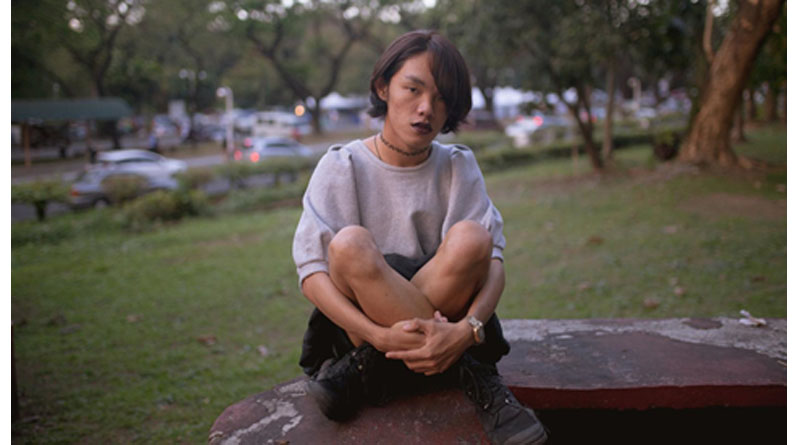
As HIV infections there soar, students at the University of Philippines-Dilliman explain what’s holding back progress.
In a deeply Catholic country like the Philippines, where abortion and divorce are still illegal, talking about sex is uncomfortable—and discussing HIV/AIDS is downright taboo.
But that reticence has borne out in the form of an explosion in new HIV infections in the country. According to UNAIDS, the HIV/AIDS agency of the United Nations, the HIV epidemic is growing faster there than anywhere else in Asia. From 2010 to 2015, it rose by more than 50 percent. (About 39,600 Filipinos are currently HIV positive, according to the agency.) It’s compounded by a lack of HIV education among young Filipinos; according to the country’s health department, only 17 percent of 15- to 24-year-olds in the country understand the basics of the virus and how it’s transmitted.
Efforts to reverse the tide have been met by resistance from religious and government authorities, as with last month’s news that the Department of Education had reversed a plan to distribute condoms to high school juniors and seniors, after outcry from parents, the church, and elected officials.
For young Filipinos, living alongside the specter of HIV is a harrowing experience. At the prestigious University of Philippines-Diliman, we asked students—both straight and LGBTQ, religious and non—to tell us how their generation has been affected by the epidemic and what must be done to stem it.
Interviews have been edited for length and clarity.
Nap Arnaiz
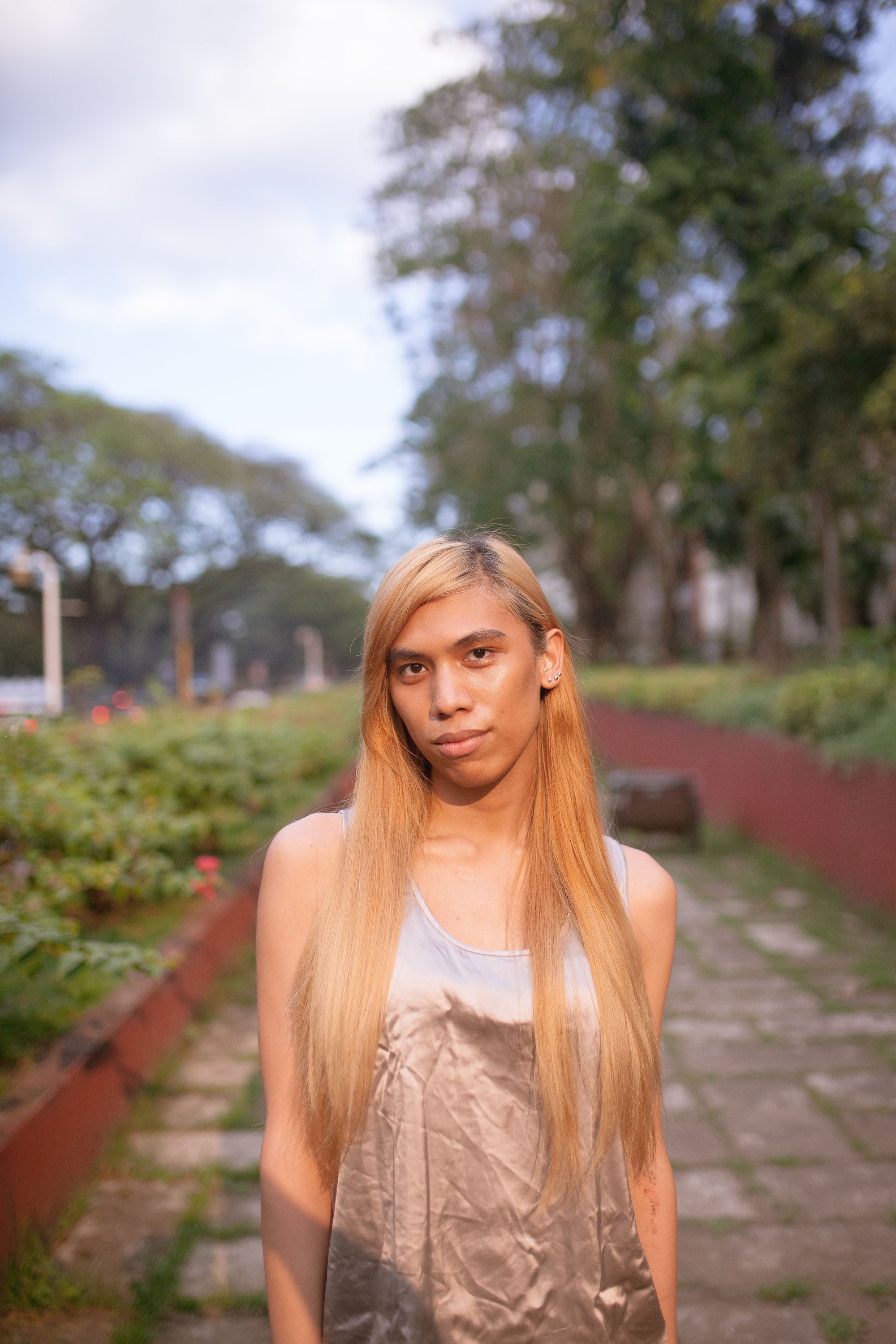
The epidemic only became real to me when I learned a close friend had HIV. He was irresponsible back then. He didn’t know when or how he got it, exactly.
I don’t think people here know how HIV works in general, like how it’s transmitted and how it affects their body. Their only knowledge of condoms is to prevent pregnancy.
I haven’t always practiced safe sex—at first I thought it was only used to prevent pregnancy and only for girls. But I learned that through my own research. It only came up in high school once.
Xavier Bilon
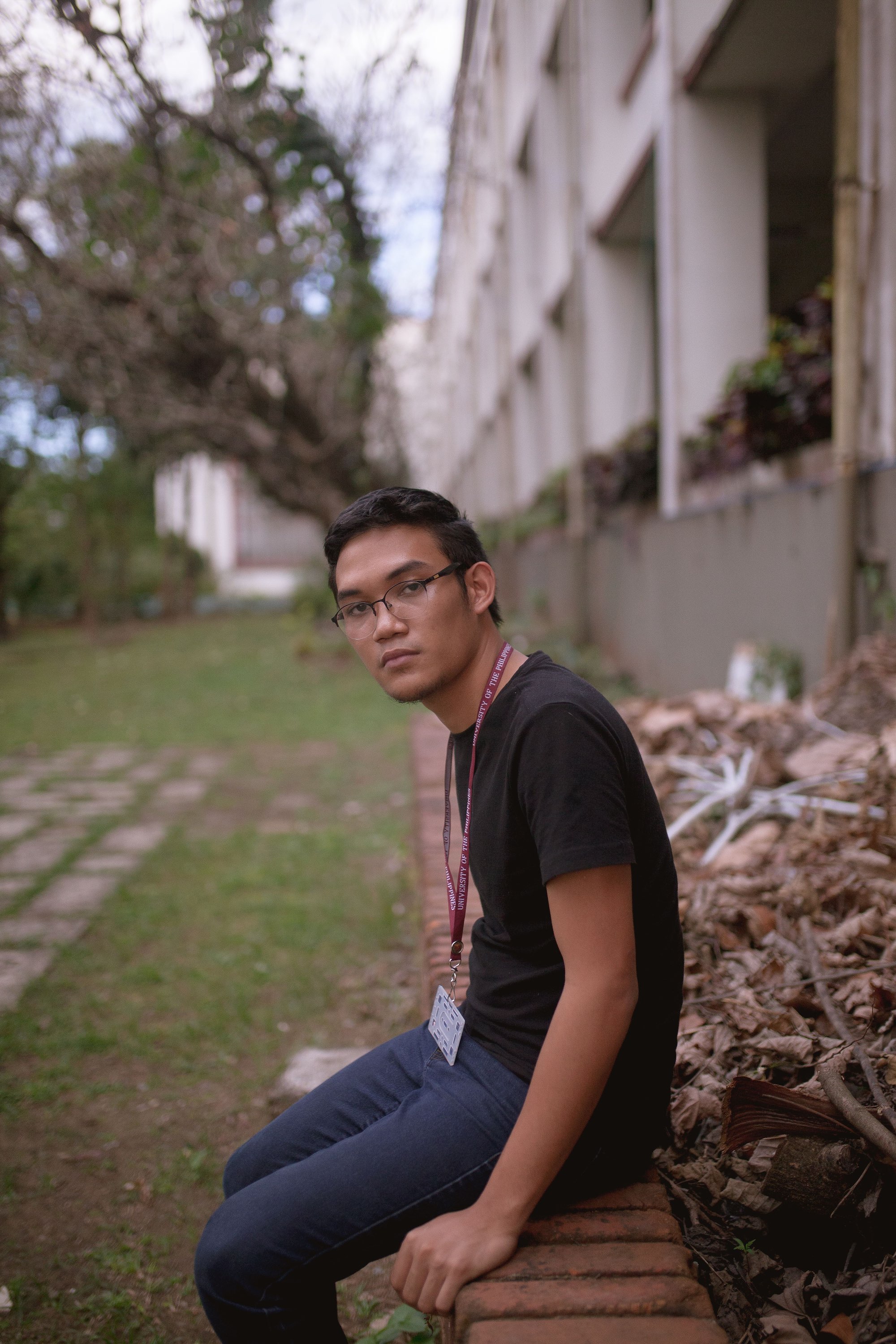
I’m the president of Babaylan, the longest-standing LGBT advocacy group in the Philippines. In this country, we don’t talk about sex, and we don’t talk about safe sex. HIV is growing because it’s a reality that people have sex. Yet the government doesn’t want to recognize that fact. The Philippines is not a rich country, and since the government isn’t helping with access to condoms, many Filipinos who want to have sex with condoms can’t. There’s stigma here about condoms, too—lots of people with access to condoms refuse to use them because they don’t think it’s pleasurable, and they don’t like to buy them because they feel judged. I have to provide my own older siblings with condoms and lubricants.
The government needs to begin to recognize that HIV/AIDS is an epidemic. Schools need to take responsibility for taking care of Filipino youth and the Catholic Church here should open their minds to promoting safe sex. Otherwise, things are only going to get worse.
Sam Cruz
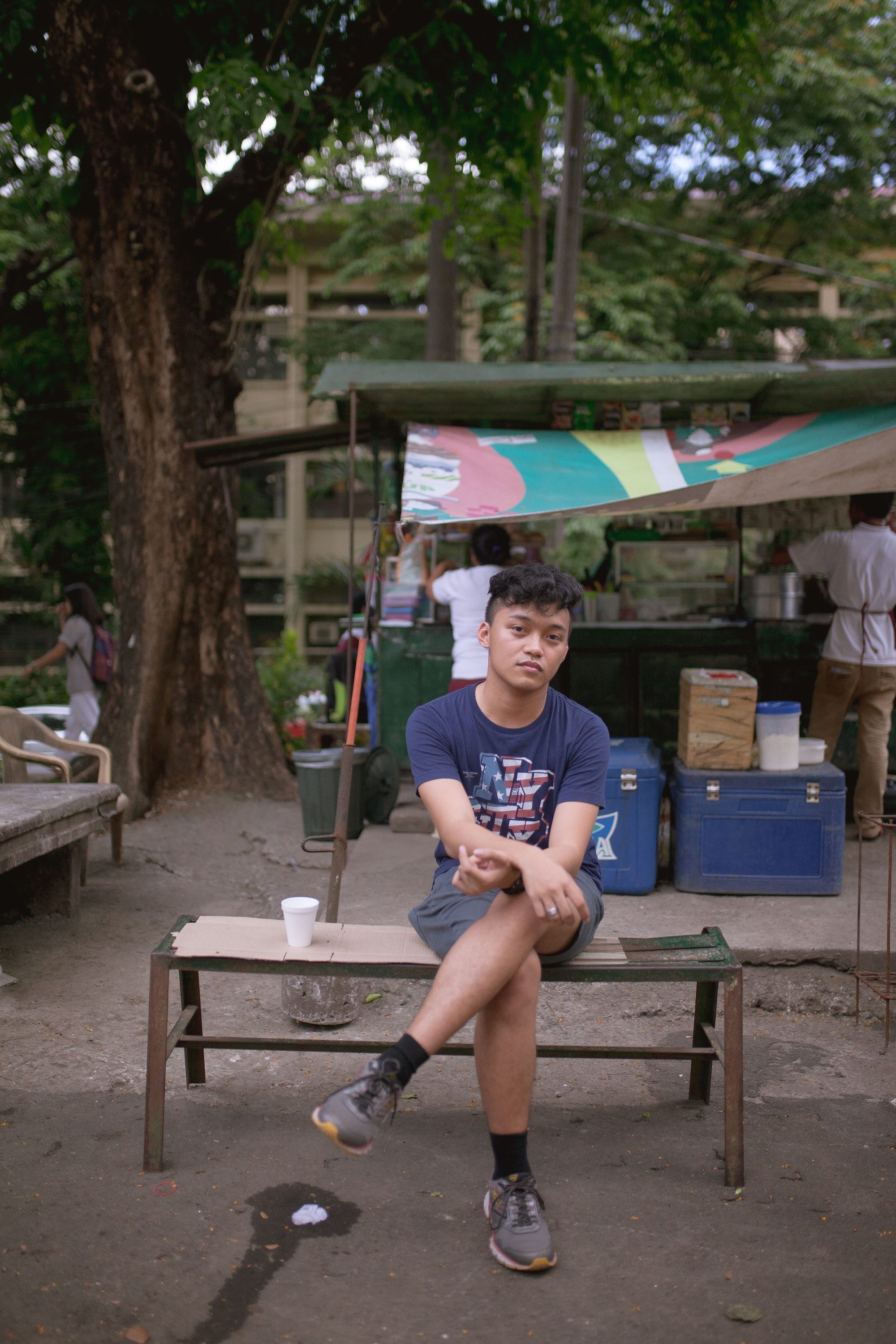
I came to Manila from the provinces, four hours away from here—and being on campus is a new feeling. With it comes a feeling of liberty and freedom, because I can practice being myself. I’m only out as gay here at university. I know I have to have protected sex, but I haven’t even experienced penetrative sex yet.
It’s very scary to think about the rise in HIV/AIDS. People are very active on gay-dating apps, especially in Manila, and they’re young and may not know about using condoms. It’s sad, because a lot of HIV patients are under 21, and many are in Manila.
I grew up in the provinces of Manila, and there, they stick to traditions. Things are up to our grandparents, to our cousins, to our friends and neighbors. They just have this feeling that being gay is weird and meant to be looked down on. It was very tough growing up gay there.
Ian Juarigue (“Misses Tan”)
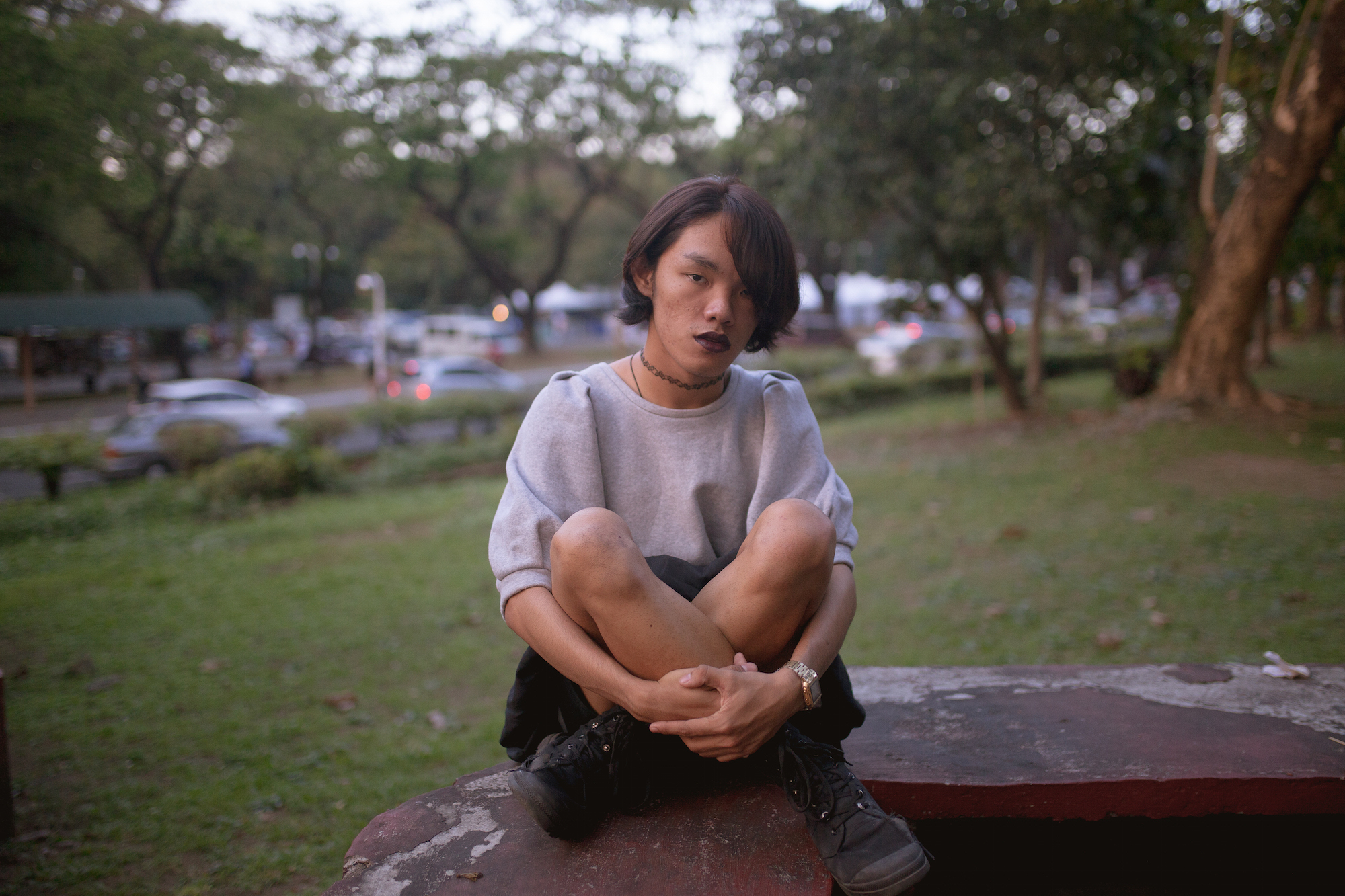
HIV/AIDS is a pressing issue right now because people have so many misconceptions about it. I’m sad, and it really affects our community. The virus goes beyond just the HIV-positive community, the LGBT community—we got free HIV testing at a university fair last month, and most people were saying, “Why would I be tested if I’m not gay?”
I feel sad about the order that condoms can’t be passed out in high school—you’re taking away those students’ chance to have safe sex. High schoolers are curious, that’s when they start testing the waters. They’re being robbed of the opportunity to experience that safely.
My first test was just a few weeks ago. I’m negative, but I was so scared, because I’d never been tested before. Though I practice safe sex, I know there’s still a lot of risk.
Marc Nathaniel Estrabo
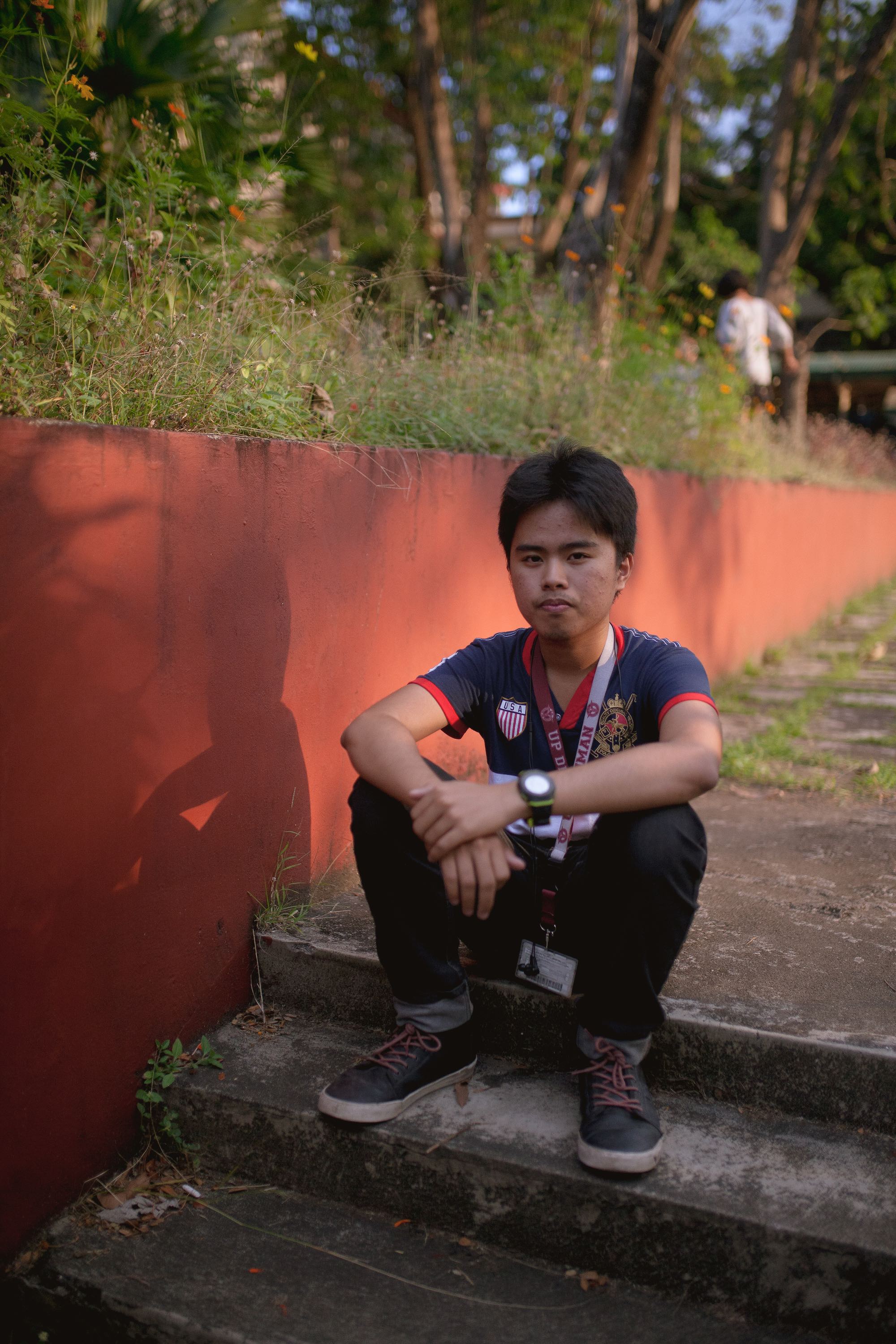
I’m part of a campus Christian group called Christian Brotherhood International. HIV/AIDS has not affected me at all, but I think the rate is rising because people my age don’t use condoms. There’s a cultural mindset that blocks them from using condoms—we’re a mostly Catholic nation. The church preaches that we don’t use condoms because that’s a sin, and that’s why the HIV/AIDS rate is so high. But I think that’s wrong. I think there should be awareness groups all around the country and the churches should be more open-minded about the situation. HIV/AIDS is lethal. It’s important to know how the virus is spread, what it is, and how to prevent it.
Avi Villa Flores
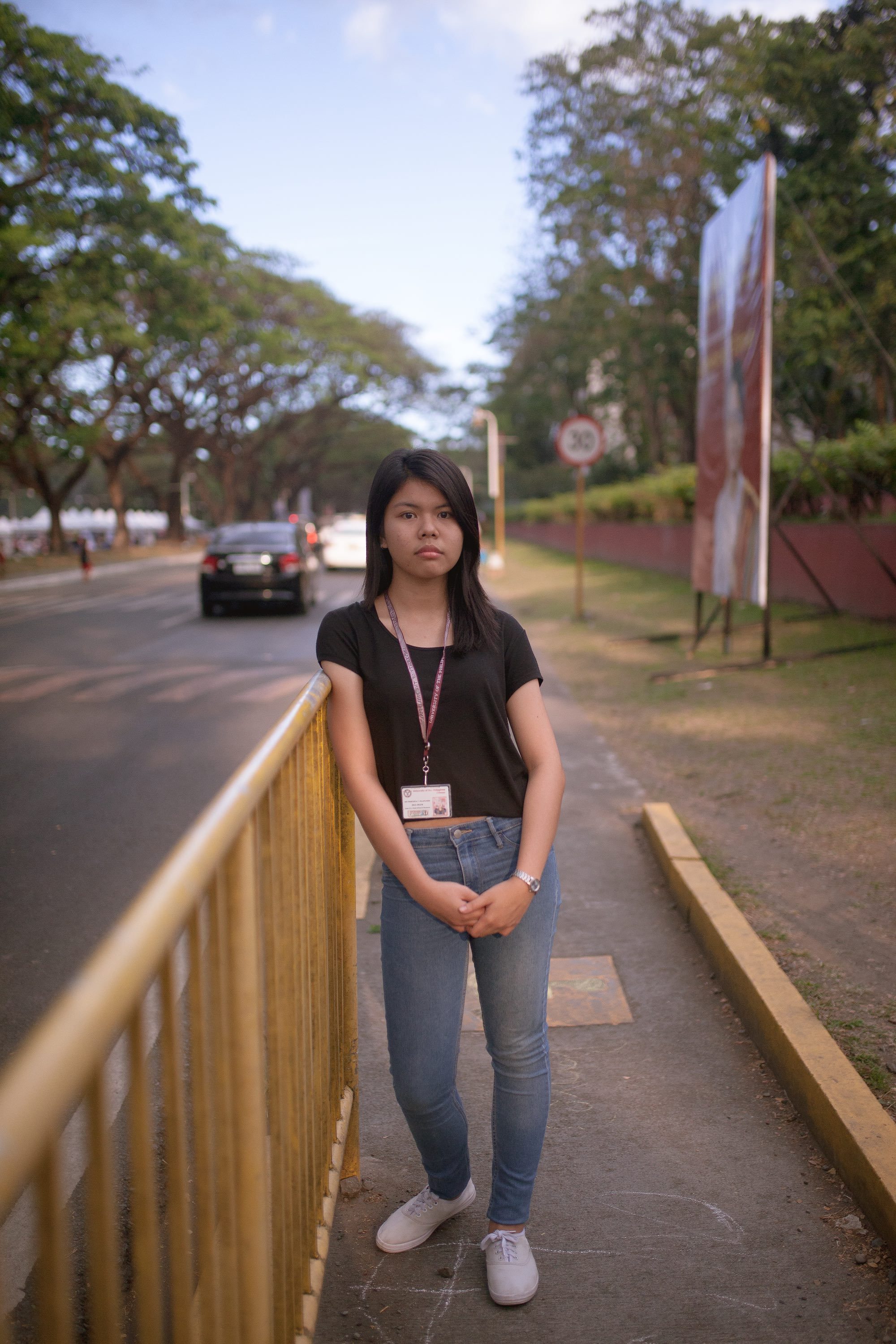
I’m affected by HIV/AIDS because now I’m more scared of having sex. I grew up knowing about safe sex because my mother is a medical technician. She taught me about condoms and how you use them when I was very young. But young people aren’t educated enough about sex, especially our generation.
Many young Filipinos today are liberated. The government should help us, and I support them implementing sex education, but I don’t support them giving out condoms to youth. If you give students condoms, it’s sparking their curiosity at a very young age.
Bryan Del Castillo (“Sugar”)
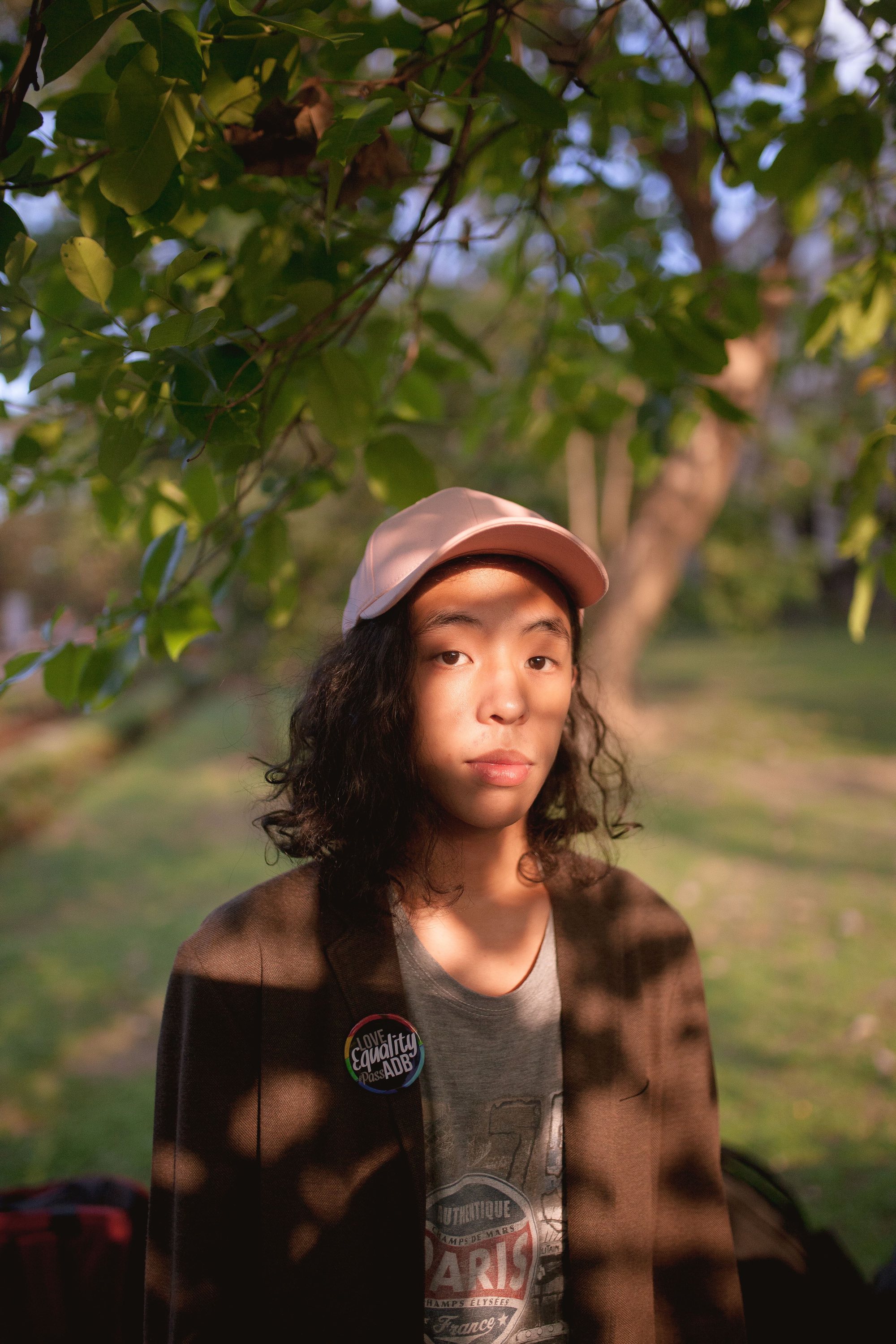
I have a couple of friends currently living with HIV, and it’s surprising—I wasn’t exposed to the HIV/AIDS epidemic before university. It’s a quiet, private issue.
The important thing to remember is that it’s not a curse. The HIV-positive need an open space to discuss what it’s like living with HIV/AIDS, and there’s a stigma that the disease is only for gay people, that it’s a plague. But it’s not, and we should be able to destroy this stigma. There’s this emerging notion now that we don’t have to be married to have sex, and more people are having sex as a result. Many are not getting tested for HIV because they’re embarrassed. The scary part of that is the people who are more liberal are afraid, too. My friends are not open about their HIV because it’s scary. They’ve changed their lifestyle, but not because they want to be healthy—it’s because they’re afraid of others figuring out they have HIV.
(Source: Vice.com)



